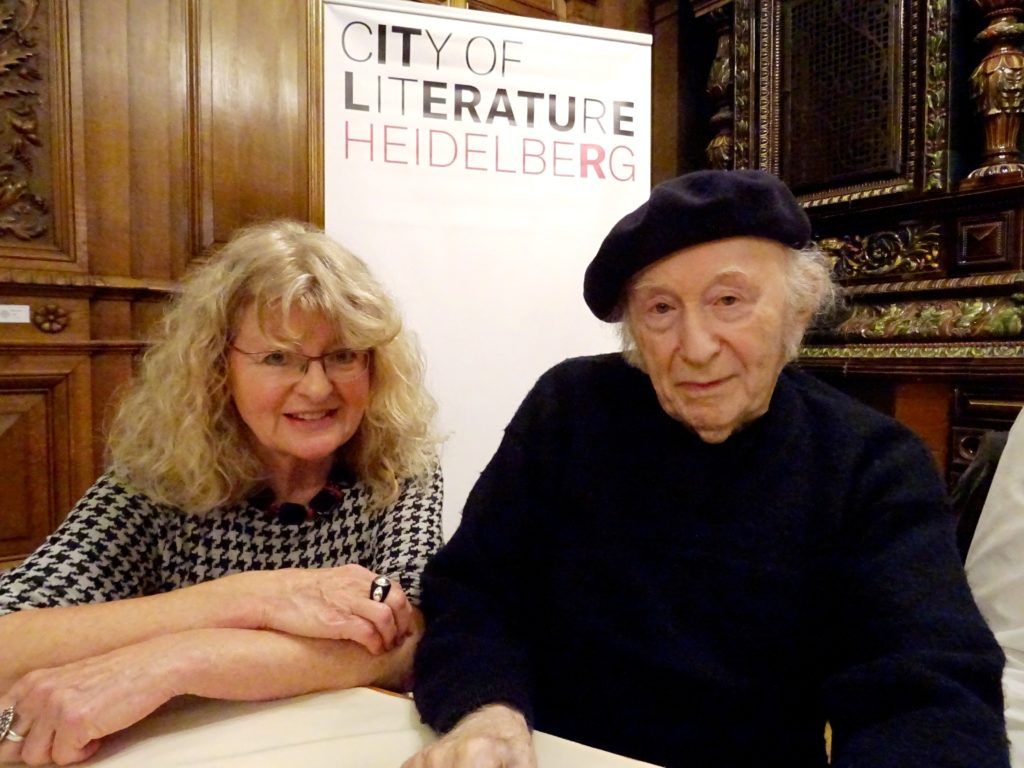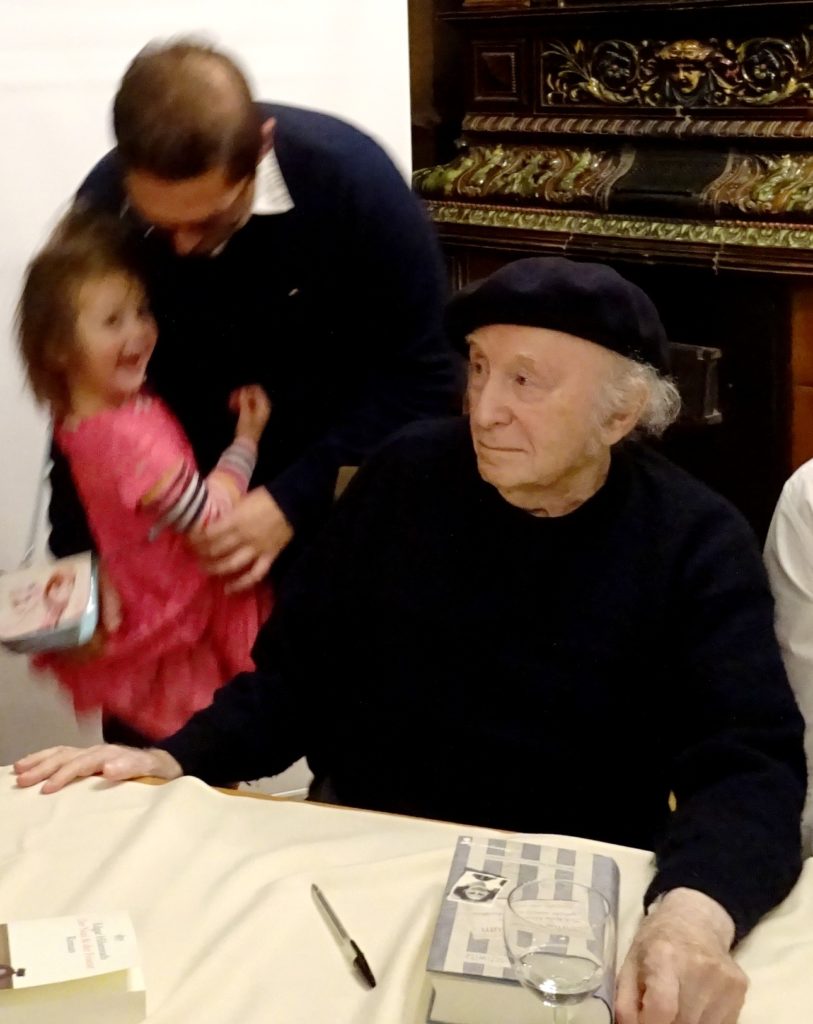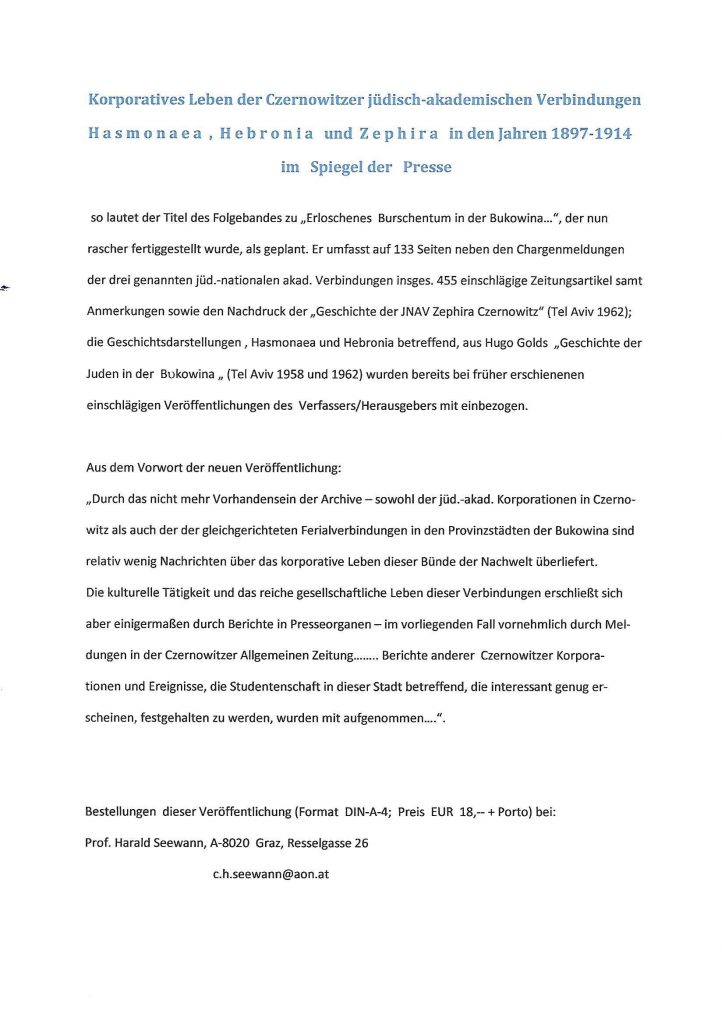Edgar Hilsenrath: “The city of Heidelberg’s 2016 Hilde Domin Prize for Literature in Exile has been awarded to German-Jewish writer Edgar Hilsenrath (born 1926). The accolade is awarded every three years to writers who live in exile in Germany, or who have been affected by the issue as descendants of exiles, who tackle the theme of exile in their literary work and who publish in German. In granting the award, the jury stated, ‘In Edgar Hilsenrath, we are honouring a writer whose life’s work has been to communicate the experience of exile through original and daring literature. His novels, which are driven by bleak, dark powers of imagination, are attempts to find ways to speak of the horrific acts humans commit against each other through various forms of the grotesque. His stories are best symbolised as laughter that gets caught in your throat – somewhere between cynicism, sorrow and assertiveness.’”
Marion Tauschwitz: I had the chance and pleasure to talk to him and to give him my biography on Selma Merbaum, he was very interested in. He and Selma could have met at Moghilew-Podolks where Selma stayed for a short while before being deported to cariera de piatra.



 Read more at:
Read more at: 








